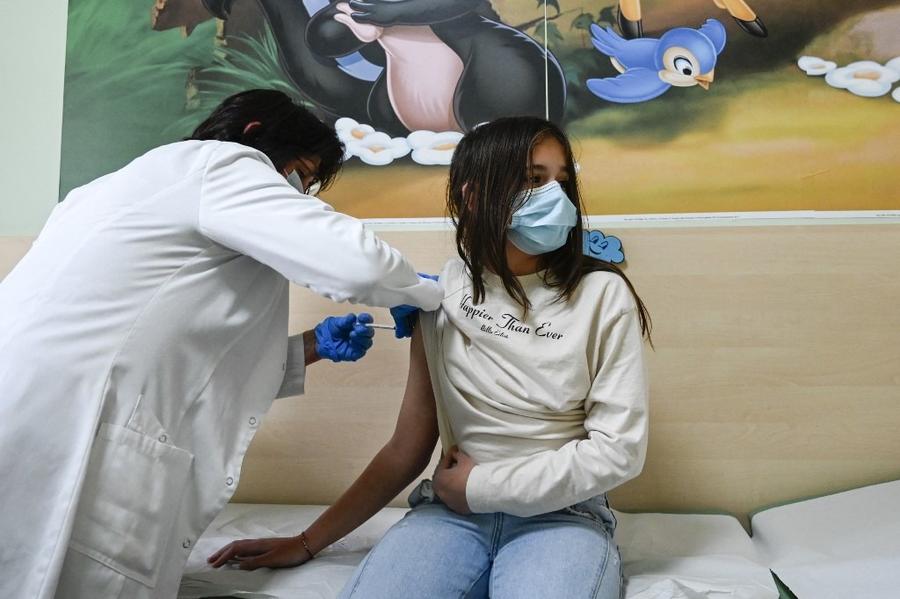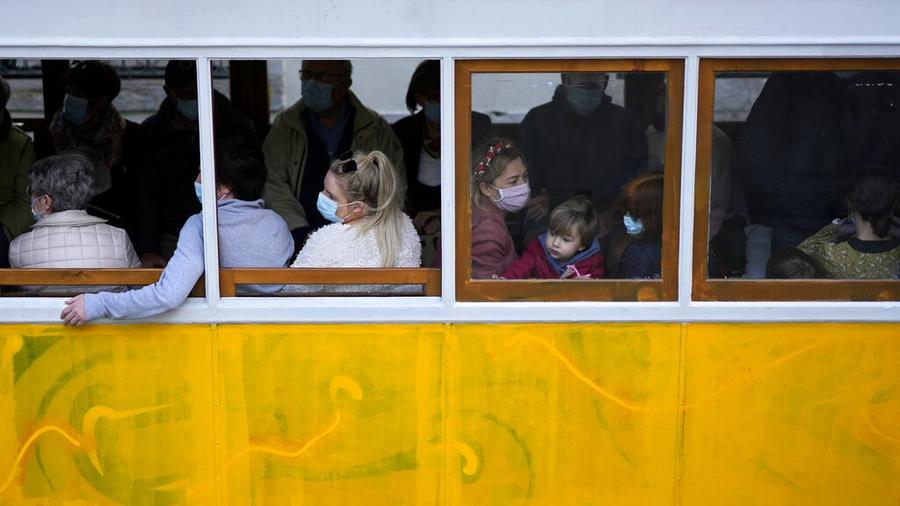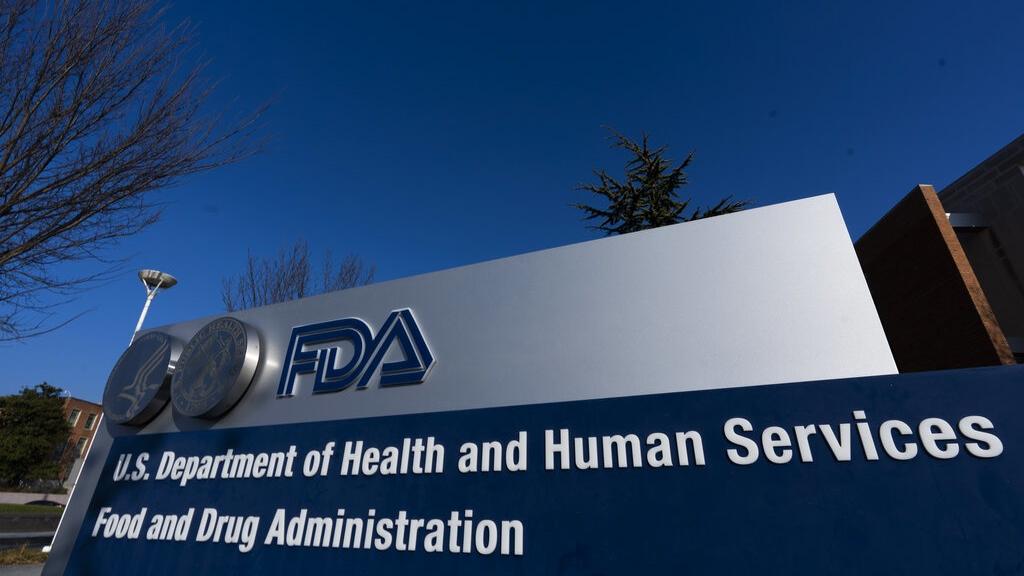 This photo shows a general view of the offices of British-Swedish multinational pharmaceutical and biopharmaceutical company AstraZeneca PLC in Macclesfield, Cheshire on July 21, 2020. (PAUL ELLIS / AFP)
This photo shows a general view of the offices of British-Swedish multinational pharmaceutical and biopharmaceutical company AstraZeneca PLC in Macclesfield, Cheshire on July 21, 2020. (PAUL ELLIS / AFP)
LISBON / WINDHOEK/ THE HAGUE - AstraZeneca moved to bolster its COVID-19 portfolio of antibodies on Tuesday with a $157 million licensing deal for experimental therapies developed by newly-launched biotech RQ Bio.
The deal gives AstraZeneca the rights to develop and sell six antibodies, none of which has been tested in humans so far, RQ Bio CEO Hugo Fry said in an interview with Reuters
In addition to the initial sum, the Anglo-Swedish drugmaker faces possible royalty payments as part of the exclusive license to develop pre-clinical COVID-19 antibodies engineered by RQ Bio, the start-up said. AstraZeneca announced the deal but not its size.
The antibodies include those designed to target people with compromised immune systems - such as AstraZeneca's own antibody cocktail, Evusheld, which has already been approved in multiple countries.
The deal gives AstraZeneca the rights to develop and sell six antibodies, none of which has been tested in humans so far, RQ Bio CEO Hugo Fry said in an interview with Reuters.
In lab studies, the antibodies have been shown to work against all known variants, including Omicron, he said.
Access to a fresh crop of COVID-19 antibodies will bolster AstraZeneca's COVID-19 portfolio, which is expecting to see a rapid decline in COVID-19 vaccine sales in 2022.
The Anglo-Swedish drugmaker's vaccine was its second bestseller last year, but it has struggled to compete with rivals made by Pfizer and Moderna, and has hit setbacks with production, rare side-effects and relatively limited shelf life.
AstraZeneca's Evusheld - which is designed to prevent symptomatic COVID-19 infections in people who are unable to derive maximum benefit from vaccines - is expected to partially offset waning vaccine sales.
It has been possible to manufacture antibodies - proteins that latch on to thwart the body's assailants both foreign (such as viruses and bacteria) and domestic (like cancer cells) - for some time.
Their use, however, has been limited to relatively niche conditions, such as patients with certain cancers, Fry said.
More recently, and particularly as the COVID-19 crisis unfolded, the scientific understanding of what antibodies can do and the ability to make them cheaply and consistently has increased.
"We're at this tipping point now...where you can use them a lot more broadly," said Fry.
RQ Bio is hoping to capitalise on this opportunity as scientists anticipate recurrent anti-COVID-19 shots.
Founded by scientists formerly on Britain's COVID-19 antibody taskforce - the company launched on Tuesday with funding from the AstraZeneca deal. It aims to make antibodies for vulnerable people at risk of severe disease or death from a range of viral infections.
 A child receives a dose of the COVID-19 Pfizer / Biontech vaccine for children aged 5-11 in the Sofiamed hospital in Sofia on Dec 22, 2021. (NIKOLAY DOYCHINOV / AFP)
A child receives a dose of the COVID-19 Pfizer / Biontech vaccine for children aged 5-11 in the Sofiamed hospital in Sofia on Dec 22, 2021. (NIKOLAY DOYCHINOV / AFP)
COVID-19 study
A chain of events possibly triggered by unrecognized infection with the SARS-CoV-2 coronavirus could be causing the mysterious cases of severe hepatitis reported in hundreds of young children around the world, researchers suggest.
Children with COVID-19 are at significantly increased risk for liver dysfunction afterward, according to a report posted on Saturday on medRxiv ahead of peer review
Children with COVID-19 are at significantly increased risk for liver dysfunction afterward, according to a report posted on Saturday on medRxiv ahead of peer review. But most of the children with acute hepatitis - which is generally rare in that age group - do not report a previous SARS-CoV-2 infection.
Instead, the majority have been found to be infected with an adenovirus called 41F, which is not known to attack the liver.
It is possible that the affected children, many of whom are too young to be vaccinated, may have had mild or asymptomatic COVID infections that went unnoticed, a separate team of researchers suggest in The Lancet Gastroenterology & Hepatology.
ALSO READ: EU: No final decision taken on ending Valneva jab contract
If that were true, they theorize, then lingering particles of the coronavirus in the gastrointestinal tract in these children could be priming the immune system to over-react to adenovirus-41F with high amounts of inflammatory proteins that ultimately damage the liver.
"We suggest that children with acute hepatitis be investigated for SARS-CoV-2 persistence in stool" and for other signals that the liver damage is happening because the spike protein of the coronavirus is a "superantigen" that over-sensitizes the immune system, they said.
Namibia
Namibia's Ministry of Health and Social Services Executive Director Ben Nangombe said Monday the country is to destroy more than 300,000 expired COVID-19 vaccine doses worth $1.6 million.
According to Nangombe, an additional 42,000 doses of the Astrazeneca vaccine are also due to expire within a few weeks.
To date, about 412,543, or 23 percent of an estimated target population of about 1.78 million, are fully vaccinated, according to the Health Ministry.
The country is currently experiencing an upsurge in the number of newly confirmed COVID-19 cases, driven by the Omicron variants sublineage BA.2 and BA.4 that have been detected in the country, while the Health Ministry also suspects that the Omicron sublineage BA.5 is also circulating in Namibia.
 In this file photo taken on Nov 30, 2021, customers watch toys inside a store with measures to limit the COVID-19 spread as Sinterklaas celebration approches in Utrecht, Netherlands. (ROBIN VAN LONKHUIJSEN / AFP)
In this file photo taken on Nov 30, 2021, customers watch toys inside a store with measures to limit the COVID-19 spread as Sinterklaas celebration approches in Utrecht, Netherlands. (ROBIN VAN LONKHUIJSEN / AFP)
Netherlands
The Netherlands is not adequately prepared for a potential severe new COVID-19 wave this coming autumn and may have to consider another lockdown, experts told national broadcaster NOS on Monday.
Two years after announcing the country's first lockdown, the Dutch government abolished the last coronavirus measures in March this year.
"I will keep my feet on the ground," Dutch Minister of Health, Welfare and Sport Ernst Kuipers said at the time. "I am seriously taking into account that the virus may return with a vengeance next autumn."
The question is how to tackle such a new wave. Talking to NOS, experts -- hospital directors, virologists and scientists - voiced their concern that the government kept silent about a potential new COVID-19 wave later this year.
Although the current infection figures are low, experts think that there is good reason to prepare for a new lockdown as the country's hospitals are already struggling with staff shortages.
The government is scheduled to spell out its long-term approach to the pandemic next month. On Monday, members of parliament quizzed experts on the details of that plan.
Several MPs doubt whether the National Institute for Public Health and the Environment will be able to signal the start of a new COVID-19 wave in time considering that it is no longer necessary to have possible coronavirus infections confirmed by tests conducted by the Municipal Public Health Services.
Politicians also question the GGD's ability to launch a mass vaccination campaign quick enough to respond to a possible new wave.
 People wearing face masks ride the Gloria funicular in Lisbon on April 19, 2022. (ARMANDO FRANCA / AP)
People wearing face masks ride the Gloria funicular in Lisbon on April 19, 2022. (ARMANDO FRANCA / AP)
Portugal
Portugal started to offer a fourth dose of the COVID-19 vaccine to elderly people and nursing home residents, the country's Directorate-General of Health (DGS) said on Monday.
The second booster dose was initially scheduled to be administered only in early autumn of this year but was brought forward due to the increase in the number of new infections in Portugal.
According to the DGS, this week those over the age of 80 will be offered the shot at vaccination centers or health centers.
The DGS's Technical Commission for Vaccination Against COVID-19 has recommended this second booster dose to improve "the protection of the most vulnerable members of the population, given the current increase in the number of new cases."
The DGS estimates that around 750,000 people should be immunized over the next four months, including those who recover from COVID-19 during this period.
Subsequently, the second booster dose will be offered to children and young people aged between 12 and 15 and to those with immunocompromised conditions.
 Food and Drug Administration building is shown Thursday, Dec 10, 2020 in Silver Spring, Md. (MANUEL BALCE CENETA / AP)
Food and Drug Administration building is shown Thursday, Dec 10, 2020 in Silver Spring, Md. (MANUEL BALCE CENETA / AP)
US
The US Food and Drug Administration has decided not to authorize the antidepressant fluvoxamine to treat COVID-19, saying that the data has not shown the drug to be an effective therapeutic for fighting the virus.
"Based on the review of available scientific evidence, the FDA has determined that the data are insufficient to conclude that fluvoxamine may be effective in the treatment of nonhospitalized patients with COVID-19 to prevent progression to severe disease and/or hospitalization," the agency said in a document published on Monday.


